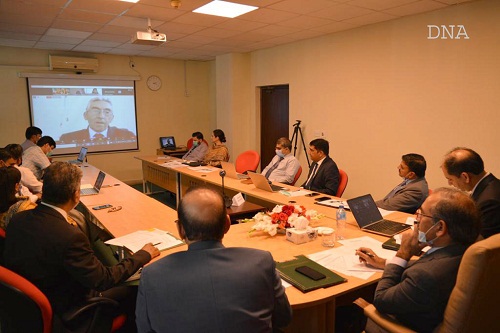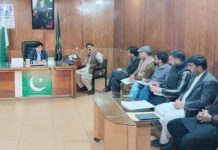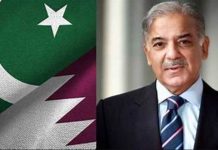Mahnoor Ansar
ISLAMABAD: In a world consumed by how it would recover from COVID-19 pandemic and what it would look like post-COVID-19, relevant actors of major parts of the world sat together over a virtual platform to discuss just that in the backdrop of South-South Cooperation. The event was held by the torch bearer of ST&I-led South-South Cooperation in the region, the Commission on Science and Technology for Sustainable Development in the South (COMSATS), commemorating this year’s United Nations Day for South-South Cooperation.
The Webinar entitled “South-South Cooperation: Creating headways for Post-Pandemic Inclusive Recovery” provided a forum to the representatives of international and development organizations to share their institutional experiences, lessons learnt and best practices in implementing S&T programs through South-South cooperation; discuss challenges and strategic approaches in promoting South-South cooperation; as well as recommend means for mainstreaming cooperation mechanism towards achieving SDGs in post-pandemic era. The event had participation of around 80 persons from Bangladesh, Benin, Canada, China, Colombia, Egypt, France, Gambia, Iran, Italy, Jordan, Kazakhstan, Kenya, Morocco, Nigeria, Palestine, Pakistan, Sri Lanka, Switzerland, Tanzania, Thailand, Turkey, Uganda, USA, Venezuela, Yemen, Zimbabwe.
The Executive Director COMSATS, Dr. Akhtar Nazir (Federal Secretary, Ministry of Science and Technology, Government of Pakistan) highlighted the importance and relevance of this event in his welcome remarks. “Overcoming emerging challenges would, inter alia, require enhanced global cooperation in the fields of science and technology. In this context, South-South and Triangular Cooperation in education, research, innovation, capacity building, policy making and infrastructure development is more important than ever before”, remarked Dr. Nazir.
The notable speakers included Dr. Adel Abdel Latif, Director United Nations Office for South-South Cooperation (UNOSSC), New York; Dr. Carlos M. Correa, Executive Director, South Centre, Geneva; Prof. Ai Likun, Assistant Executive Director, Alliance of International Science Organizations (ANSO), Beijing; Dr. Peter McGrath, Inter-Academy Partnership (IAP), Trieste; Prof. Mahouton N. Hounkonnou, President of Network of African Science Academies (NASAC), Nairobi; Dr. M. Sharif, Advisor Science and Technology, Islamic World Educational, Scientific and Cultural Organization (ICESCO), Rabat; and Mr. Adnan H. Aliani, Director for Strategy and Programme Management Division, United Nations Economic and Social Commission for Asia and the Pacific (UNESCAP), Bangkok.
The talks by these speakers and following Q&A sessions covered various aspects of the theme of the event, including challenges and achievements of these institutions and associated countries since the onset of COVID-19; policy directions relating to COVID-19 recovery; dynamics of South-South Cooperation and necessary synergies; importance of STEM education in the developing world for inclusive recovery; the role of Academies of Science in leveraging South-South Cooperation; development and implementation of effective S&T programmes for post COVID-19 world.
Attended by scholarly minds from over 20 countries, the event resulted in building understanding and stronger resolve for exploring ways to enhance South-South Cooperation for achieving SDGs and building back better from COVID-19 Pandemic.

















